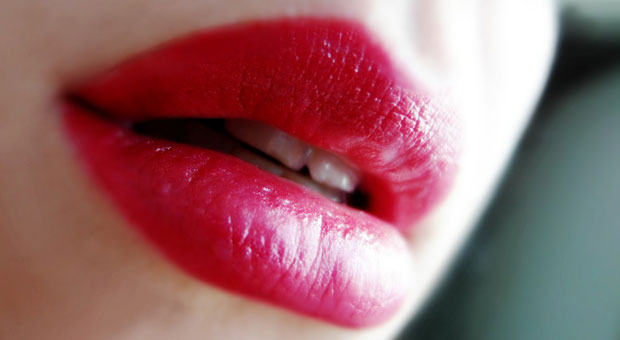What is mewing - and can the technique change your face?
Niche orthodontic practice has become a YouTube craze

A free daily email with the biggest news stories of the day – and the best features from TheWeek.com
You are now subscribed
Your newsletter sign-up was successful
YouTube has gained notoriety as a breeding ground for dangerous crazes such as the so-called Bird Box and Laundry Pod challenges but the latest viral trend may leave participants with more to smile about.
Social media is awash with tips and videos about “Mewing”, a technique that advocates claim can cure overbites and firm up the jawline to boot. So what does it involve - and does it actually work?
What is mewing?
The Week
Escape your echo chamber. Get the facts behind the news, plus analysis from multiple perspectives.

Sign up for The Week's Free Newsletters
From our morning news briefing to a weekly Good News Newsletter, get the best of The Week delivered directly to your inbox.
From our morning news briefing to a weekly Good News Newsletter, get the best of The Week delivered directly to your inbox.
Mewing is named after father-and-son British orthodontists John and Mike Mew, both advocates of a controversial method for correcting malocclusion, the technical term for the misalignment that causes overbites or underbites.
The key part of the technique - which the Mews dubbed “orthotropics” - is to change the position of the tongue when at rest, pressing it to the roof of the mouth, part of the upper jaw bone, or maxilla.
According to the dentist duo, “consistent tongue placement on the maxilla apparently renders it malleable, thus changing face shape”, The Guardian reports. This allegedly does away with the need for braces or surgery to correct malocclusion.
Practitioners of mewing are also encouraged to breath through the nose and chew thoroughly to strengthen the face muscles.
A free daily email with the biggest news stories of the day – and the best features from TheWeek.com
Dr Mike Mew, who took over his father’s London clinic in 2014, has posted hundreds of videos to YouTube explaining the practice. He told Vice that simple postural adjustments could drastically change bone structure without any medical intervention.
“Few people in the modern world have gained the full genetic potential in their facial development,” he said.
As well as correcting overbites or underbites, the theory holds that “having the correct tongue, jaw and neck posture can help improve jaw problems, mouth muscle pains, and sleep apnea”, the Daily Mail reports.
However, the recent mewing craze appears to be driven principally by its potential aesthetic benefits.
On a Reddit forum dedicated to orthotropics, users “earnestly seek advice on how to gain their desired facial features, which includes (but is not limited to) ‘hunter eyes’ or deep-set almond eyes, more pronounced cheekbones and defined jawlines”, says The Guardian.
Does it work?
Mewing has “been popular for quite some time, on incel forums and hyper-masculine fringes of the internet”, says Vice, but in recent months Instagram, YouTube and Reddit have been flooded with before and after photos demonstrating the supposed effects of mewing.
Yet the success of mewing is purely anecdontal, as “the alleged benefits of the technique have yet to be substantiated by science,” The Guardian reports.
In December, Mew uploaded a video to YouTube claiming he had been expelled from the British Orthodontic Society for his advocacy of mewing, which is not accepted by mainstream orthodontics.
The society would not confirm or deny the reports, saying they were unable to discuss the status of individual members.
Orthodontist Dr Uchenna Okoye of the London Smiling clinic told Vice that there was “some truth” to the idea that mewing could alleviate sleep apnea, but said the more exaggerated claims needed to be taken with a “pinch of salt”.
However, she added that while the supposed benefits of mewing are not scientifically proven, the practice does not pose any risk to its adherents.
-
 6 exquisite homes with vast acreage
6 exquisite homes with vast acreageFeature Featuring an off-the-grid contemporary home in New Mexico and lakefront farmhouse in Massachusetts
-
 Film reviews: ‘Wuthering Heights,’ ‘Good Luck, Have Fun, Don’t Die,’ and ‘Sirat’
Film reviews: ‘Wuthering Heights,’ ‘Good Luck, Have Fun, Don’t Die,’ and ‘Sirat’Feature An inconvenient love torments a would-be couple, a gonzo time traveler seeks to save humanity from AI, and a father’s desperate search goes deeply sideways
-
 Political cartoons for February 16
Political cartoons for February 16Cartoons Monday’s political cartoons include President's Day, a valentine from the Epstein files, and more
-
 Epstein files topple law CEO, roil UK government
Epstein files topple law CEO, roil UK governmentSpeed Read Peter Mandelson, Britain’s former ambassador to the US, is caught up in the scandal
-
 Iran and US prepare to meet after skirmishes
Iran and US prepare to meet after skirmishesSpeed Read The incident comes amid heightened tensions in the Middle East
-
 Israel retrieves final hostage’s body from Gaza
Israel retrieves final hostage’s body from GazaSpeed Read The 24-year-old police officer was killed during the initial Hamas attack
-
 China’s Xi targets top general in growing purge
China’s Xi targets top general in growing purgeSpeed Read Zhang Youxia is being investigated over ‘grave violations’ of the law
-
 Panama and Canada are negotiating over a crucial copper mine
Panama and Canada are negotiating over a crucial copper mineIn the Spotlight Panama is set to make a final decision on the mine this summer
-
 Why Greenland’s natural resources are nearly impossible to mine
Why Greenland’s natural resources are nearly impossible to mineThe Explainer The country’s natural landscape makes the task extremely difficult
-
 Iran cuts internet as protests escalate
Iran cuts internet as protests escalateSpeed Reada Government buildings across the country have been set on fire
-
 US nabs ‘shadow’ tanker claimed by Russia
US nabs ‘shadow’ tanker claimed by RussiaSpeed Read The ship was one of two vessels seized by the US military